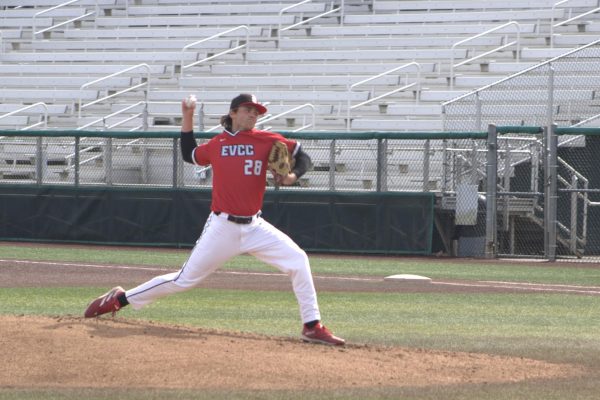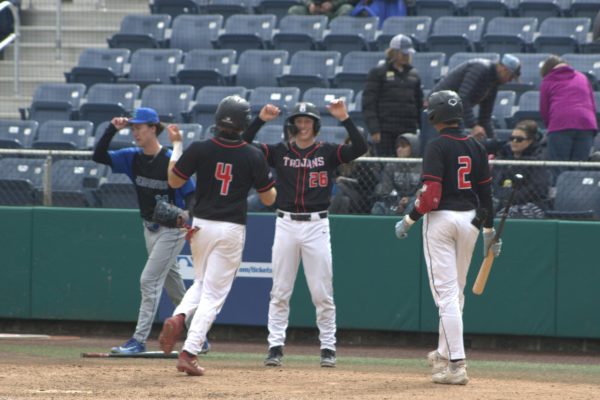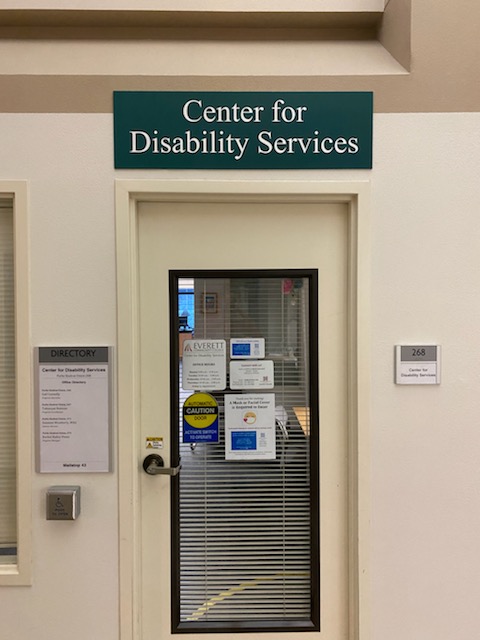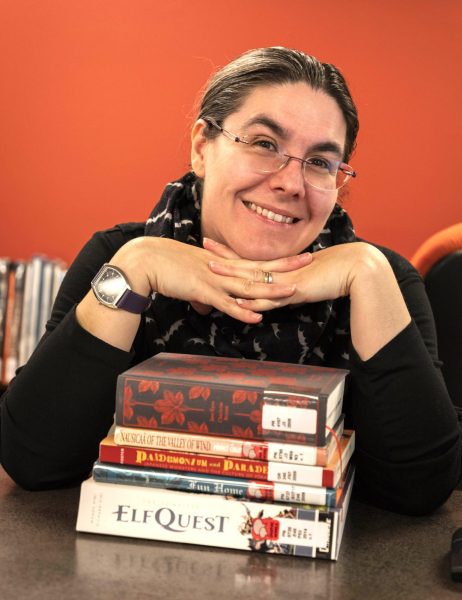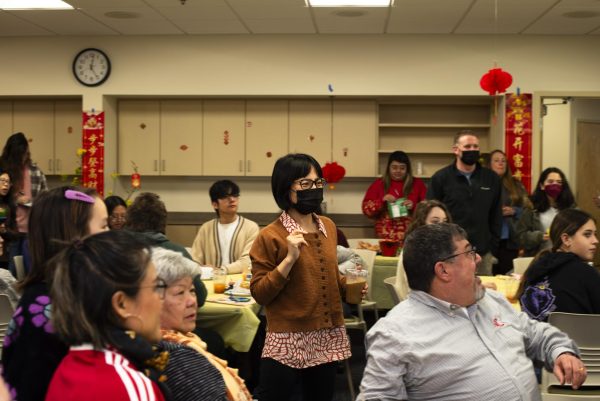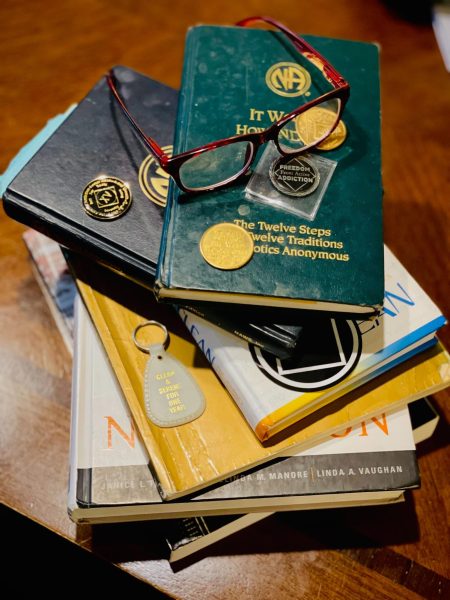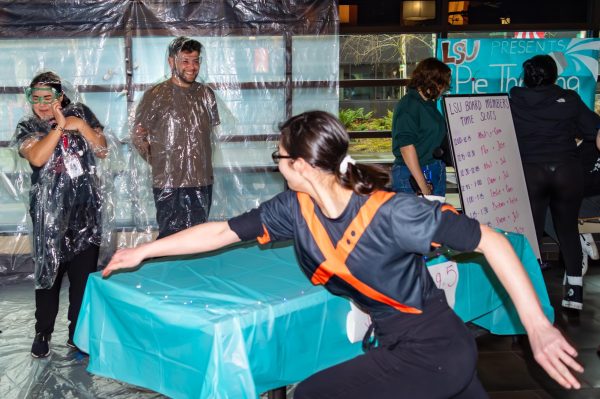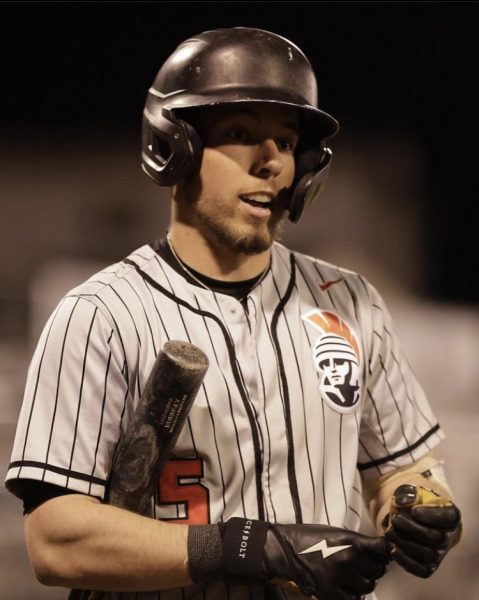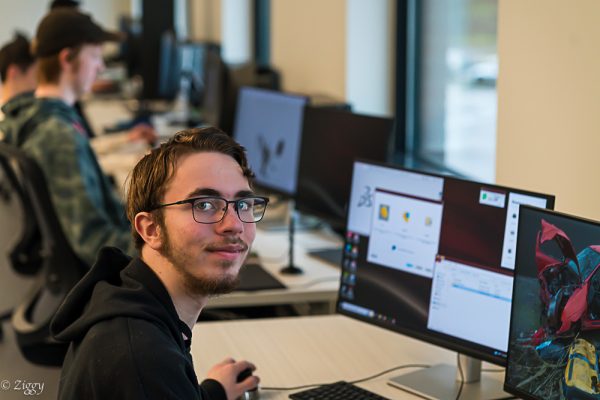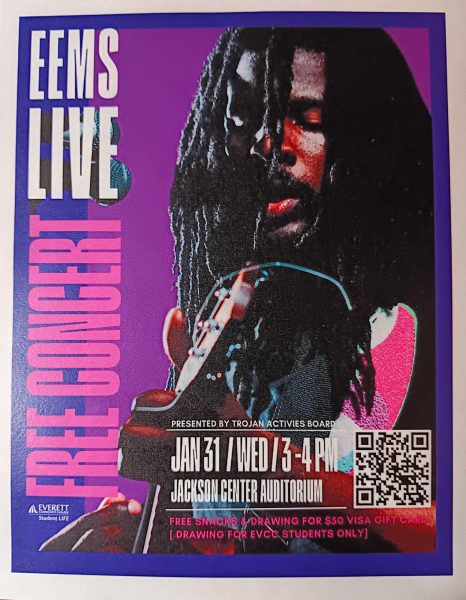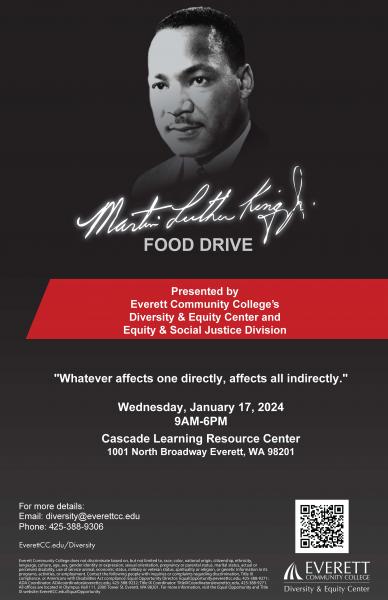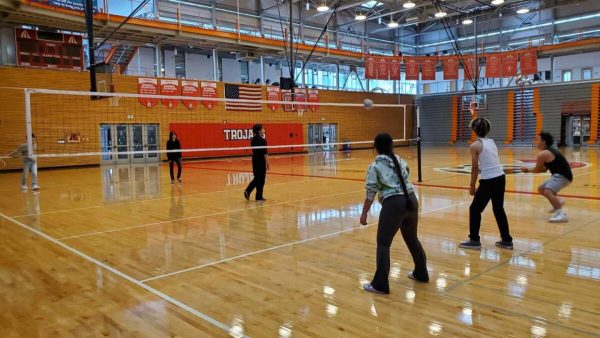Students with Disabilities Missing Out on Accommodations that Help Them Succeed
Center for Disability Services Office in the Parks Student Union Room 268
More students with disabilities are choosing to attend college than ever before, yet few are taking advantage of the accommodations available to them that can make the difference between success and failure – or at least an easier time accomplishing their academic goals. Whether embarrassment or confusion about how to ask for help plays a role, disabled students often struggle in silence rather than seek assistance. It doesn’t have to be that way.
The 1990 Americans with Disabilities Act ensures postsecondary institutions like Everett Community College (EvCC) provide reasonable accommodations to students with a verified disability. The accommodations are meant to eliminate barriers associated with the disability so the student has a level playing field to achieve their academic goals.
Despite this law, statistics show that the number of college students taking advantage of the services is very low. For example, according to the National Center for Special Education Research (a research and evaluation arm of the U.S. Department of Education) historically 87% of high school students with disabilities receive some type of assistance.
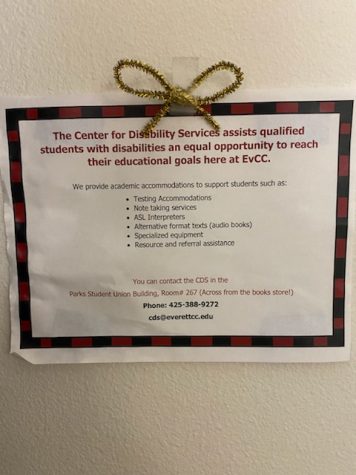
In contrast, only about 19% of college students with disabilities generally take advantage of disability resources at their college campus. The consequences are significant. The NCSER shows that the dropout rate can be high for disabled students, with only about 34% completing a four-year college degree after high school.
It’s unclear why there is a reluctance by college students to declare their disabled status and seek the assistance they need. The NCSER noted that nearly 63% of college students who were identified as disabled in high school no longer considered themselves as having a disability by the time they entered college. A conversation with Elsa Sanchez, an EvCC student receiving disability accommodations, revealed some of the challenges. She explained that she was initially hesitant to ask for help because she felt, “ashamed about asking for accommodations.” She had been raised not to ask for help, so it was difficult to admit she needed some. Sanchez also indicated she was unsure how to get started, but was fortunate to find an advisor who was very understanding and took the time to show her how to apply. Now grateful that she did, Sanchez recommends students, “just go for it and don’t overthink it if they need help.”
Staff at the EvCC Center for Disability Services (CDS) agree. Robert Barker, CDS Office Assistant, explains, “students can easily contact our office either by stopping by in person or going online.” In-person meetings are available in Room 268 of the Parks Student Union building across from the book store any Monday from 9:30 a.m. to 4:00 p.m. or Tuesday, Wednesday or Thursday from 10:00 a.m. to 3:00 p.m. Barker notes that, “if students prefer online, they can enter the CDS Zoom lobby from the EvCC website any time Monday-Thursday from 9:30 a.m. to 4:00 p.m.” Either way, students will be quickly connected with a helpful resource who can discuss their disability and assist them with filling out an online application.
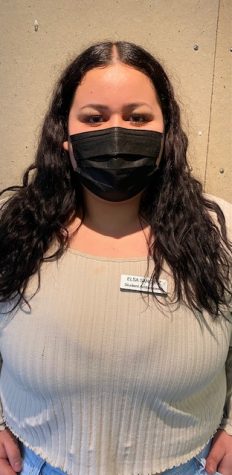
Shortly after the application is submitted, the student will be set up for a meeting with the CDS director or program manager to go over their needs and accommodations. Once the accommodations are established, the CDS office will notify the student’s instructors of the approved accommodations so they can be implemented. Gail Connelly, a CDS Program Specialist, emphasizes that, “there are no details regarding the nature of the student’s disability or medical history shared with instructors or outside of the CDS office.” She explains that this sensitive information is kept strictly confidential and instructors are only told about the accommodations needed. Connelly urges students not to be embarrassed or reluctant to discuss their situation or needs with CDS staff. “The CDS office is meant to help students and the process is easy,” she explains.
If you are a student at EvCC who has a disability and is struggling in any way, you owe it to yourself to stop by the CDS office and find out how they can help. It could make all the difference in your future. You can review the CDS webpage for further details and/or application forms at https://www.everettcc.edu/students/cds.

What interests you about journalism?
Journalism interests me because I like to know the facts about things so that I can make my own judgment. I know...

